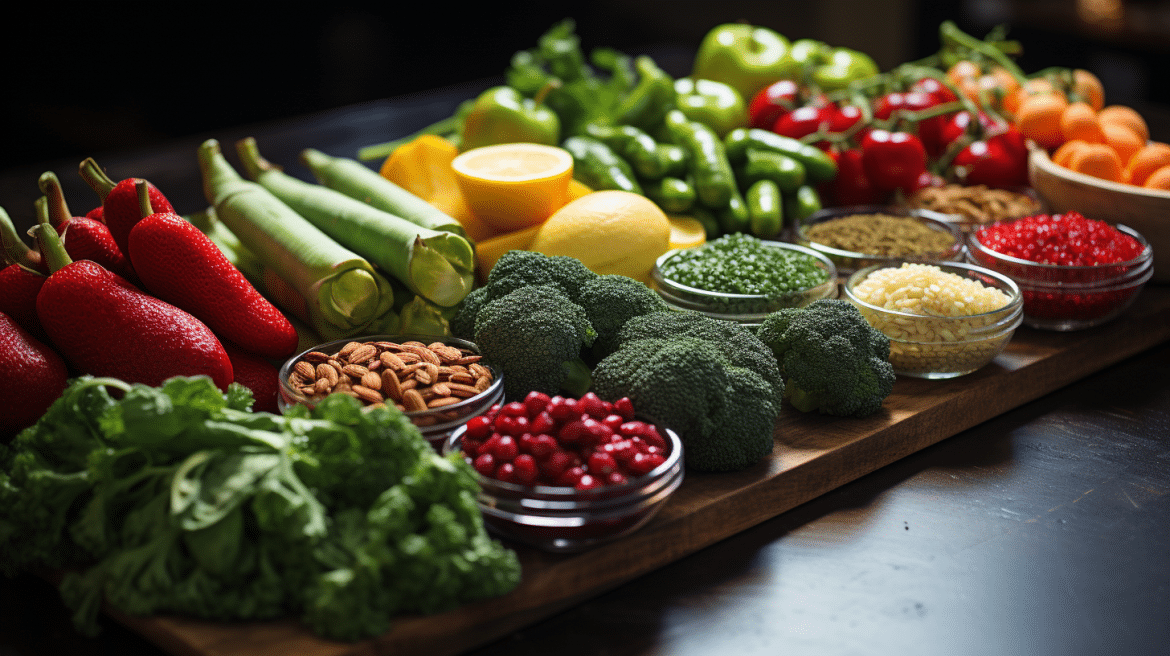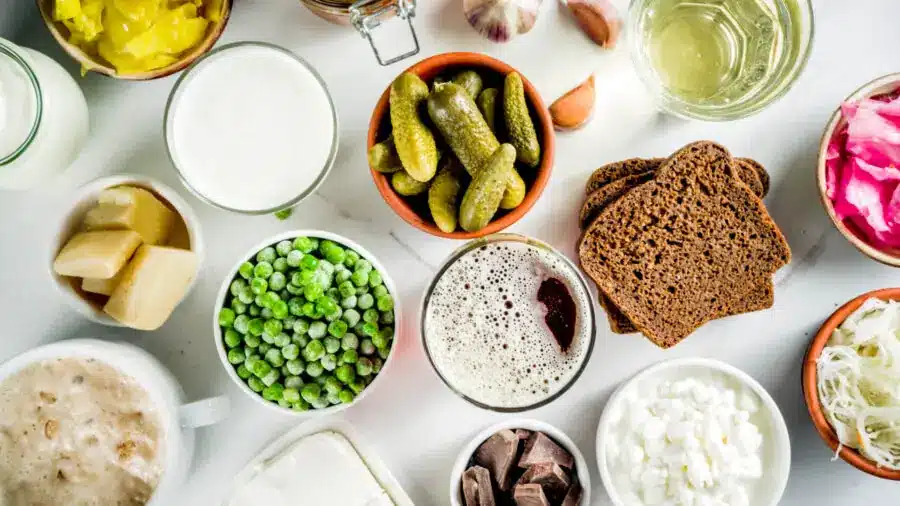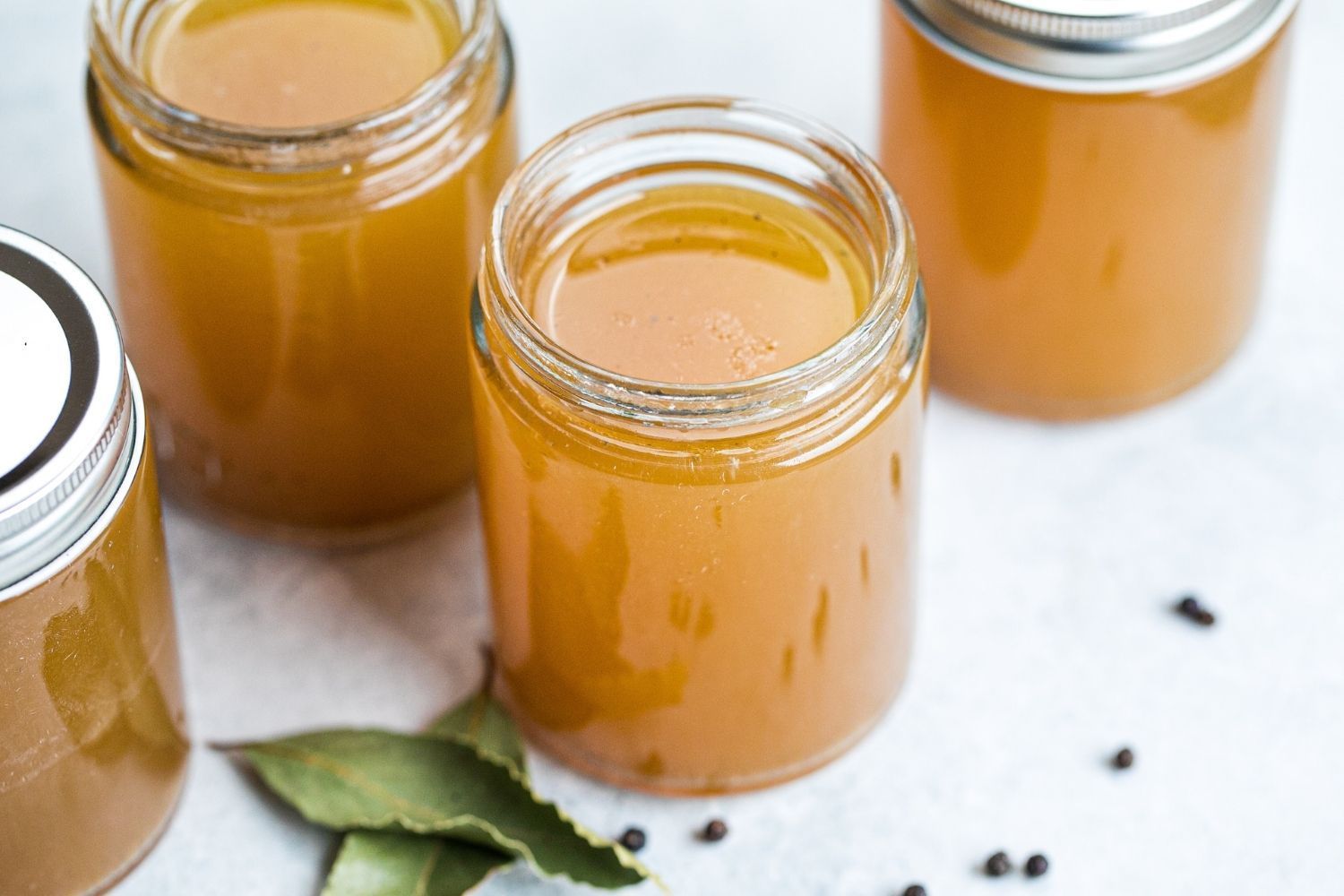In recent years, research has increasingly highlighted the importance of gut health in maintaining overall well-being. The gut, often referred to as the “second brain,” plays a crucial role not only in digestion but also in various aspects of our health,
A key factor in maintaining gut health is diet. The foods we eat can have a profound impact on the composition of our gut microbiota, which in turn influences our health in numerous ways. The human gut microbiota refers to the trillions of microbes, such as bacteria, that live in the human gut.
The microbiome is the environment they live in. Most microbes in the body are useful, but they may become harmful when out of balance. A diet rich in fiber, probiotics, and prebiotics may help promote a healthy balance of gut bacteria and support digestive health.
In this blog post, we will delve into the importance of gut health support and its impact on overall well-being. We will explore how dietary choices can influence gut health and provide practical tips for incorporating foods that support gut health into your diet, like probiotics and prebiotics, and what they are. Let’s embark on a journey to better understand the vital role of gut health in our overall wellness and learn how to nourish our bodies from the inside out.
Yogurt
Yogurt has long been hailed as a staple for promoting gut health, thanks to its rich probiotic content. Probiotics are beneficial bacteria that help maintain a healthy balance of microorganisms in the gut, supporting good digestion and overall well-being. Greek yogurt, in particular, is known for its higher protein content and thicker texture, making it a popular choice among health-conscious individuals.
Kefir, another fermented dairy product similar to yogurt, is also packed with probiotics and offers additional benefits for gut health.
Fermented Foods
Fermented foods, such as kimchi, sauerkraut, and kombucha, play a crucial role in supporting gut health. These foods undergo a fermentation process, during which beneficial bacteria break down sugars and produce lactic acid, giving rise to their distinctive tangy flavors.
Consuming fermented foods helps introduce beneficial probiotics into the gut, which can help balance the gut microbiome and support digestive health. Incorporating a variety of fermented foods into your diet can contribute to a diverse and thriving gut microbiota, promoting overall well-being.
High-Fiber Foods
High-fiber foods, including fruits, vegetables, and whole grains, play a crucial role in supporting gut health. Fiber is indigestible plant material that passes through the digestive system relatively intact, adding bulk to stool and promoting regular bowel movements.
Additionally, fiber acts as a prebiotic, serving as fuel for beneficial gut bacteria, which in turn promotes a healthy gut environment. By incorporating a variety of high-fiber foods into your diet, you can support digestive health and maintain a diverse gut microbiome, contributing to overall well-being.
Bone Broth
Bone broth has gained popularity in recent years for its potential benefits in supporting gut health. Made by simmering animal bones and connective tissue in water for an extended period, bone broth is rich in collagen, gelatin, and amino acids, which are thought to help repair the gut lining and support digestive health.
Collagen, in particular, is a structural protein that plays a crucial role in maintaining the integrity of the gut barrier. Incorporating bone broth into your diet may be as simple as sipping it as a warm beverage or using it as a base for soups, stews, and sauces. Additionally, bone broth can be used as a cooking liquid for grains or as a flavorful addition to various dishes, providing both nourishment and potential gut health benefits.
Kimchi
Kimchi, a traditional Korean fermented dish, is made from vegetables, typically cabbage and radishes, seasoned with spices. Similar to sauerkraut, kimchi undergoes a fermentation process that results in the production of beneficial probiotics. These probiotics help populate the gut with healthy bacteria, promoting a balanced gut microbiome and supporting digestive health. Incorporating kimchi into your diet can provide a flavorful way to support gut health and add variety to your meals.
Kombucha
Kombucha is a fermented tea beverage that has gained popularity for its potential health benefits, including its probiotic content.
During the fermentation process, kombucha is infused with beneficial bacteria and organic acids, which can support digestion and promote a healthy gut microbiome. Drinking kombucha regularly can be a refreshing way to introduce probiotics into your diet and support overall gut health.
Miso
Miso, a traditional Japanese seasoning, is made from fermented soybeans, rice, or barley. It is rich in probiotics and can be used to improve the flavor of various dishes, including soups, marinades, and dressings.
Adding miso to your meals not only provides a savory taste but also introduces beneficial bacteria to support gut health. Incorporating miso into your cooking repertoire can be a delicious way to promote a healthy gut microbiome and support the nutritional value of your meals.
Tempeh
Tempeh is a fermented soybean product that is high in protein and probiotics. It originates from Indonesia and is made by fermenting cooked soybeans with a specific mold. This fermentation process not only enhances its nutritional value but also increases its digestibility and bioavailability of nutrients.
Tempeh is not only a great source of plant-based protein but also provides beneficial probiotics that support gut health. Incorporating tempeh into your diet as a meat substitute in various dishes can provide both nutritional value and gut health benefits.
Garlic
Garlic is known for its culinary versatility and numerous health benefits, including its potential to support gut health. Garlic contains compounds such as fructans and inulin, which act as prebiotics.
Prebiotics are substances that feed and promote the growth of beneficial gut bacteria, helping to maintain a healthy gut microbiome. By adding garlic to your meals, whether raw or cooked, you can provide your gut with prebiotic compounds that support overall gut health and improve digestion.
Onions
Similar to garlic, onions are rich in prebiotic compounds that nourish beneficial gut bacteria. Onions contain fructans, oligosaccharides, and inulin, which act as prebiotics and help promote the growth of beneficial bacteria in the gut.
Incorporating onions into your diet, whether raw or cooked, can help support gut health and improve digestion by providing your gut with prebiotic compounds. Adding onions to salads, soups, stir-fries, and other dishes is an easy way to enhance the flavor of your meals while also supporting your gut microbiome.
Probiotic Supplements
It is important to recognize that not everyone’s diet may consistently provide these essential nutrients. In such cases, probiotic supplements can be a helpful option to support gut health.
Probiotic supplements are available in various forms, including capsules, tablets, powders, and liquids. They contain specific strains of beneficial bacteria that are known for gut health support. When selecting a probiotic supplement, it’s important to choose one that contains strains known to be beneficial for the specific health concerns or conditions you’re looking to address.
While probiotic supplements can be beneficial, they should not be viewed as a substitute for a healthy diet. Ideally, they should complement a balanced diet rich in fiber, prebiotics, and probiotic-rich foods. Additionally, it’s advisable to consult with a healthcare professional before starting any new supplement regimen, especially if you have underlying health conditions or concerns.
Incorporating whey protein powder into your diet can complement your probiotic supplements and support overall gut health. The combination of protein powder and probiotic supplements can improve digestion and nutrient absorption.
Conclusion
We have explored a variety of foods that can support gut health and promote a healthy gut microbiome. From fermented foods like kimchi, kombucha, miso, and tempeh, which are rich in probiotics, to prebiotic-rich foods like garlic and onions, each of these foods plays a crucial role in nurturing beneficial gut bacteria and supporting digestive health.
By incorporating a diverse range of these foods into your diet, you can provide your gut with the essential nutrients it needs to thrive. Probiotic-rich foods help introduce beneficial bacteria into the gut, while prebiotic-rich foods nourish and support the growth of these bacteria, creating a balanced and healthy gut microbiome.
Including this variety of foods in your diet promotes gut health support and overall well-being. Whether you enjoy fermented foods like kimchi and kombucha, incorporate probiotic-rich tempeh into your meals, or add prebiotic-rich garlic and onions to your dishes, each of these foods may contribute to a healthier gut and improved digestion.
Remember, a balanced and diverse diet that includes a variety of foods for gut health support is key to maintaining optimal gut health and overall well-being. Start incorporating these gut-friendly foods into your meals today and reap the benefits of a healthy gut microbiome for years to come. Your gut will thank you.





